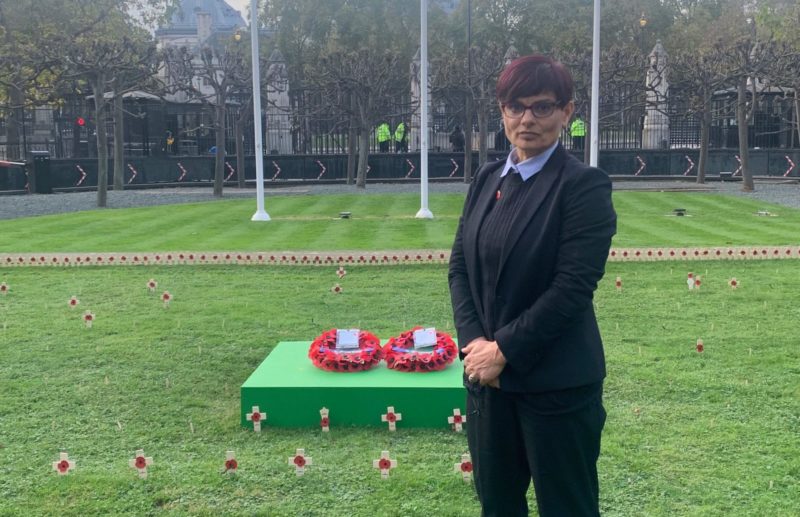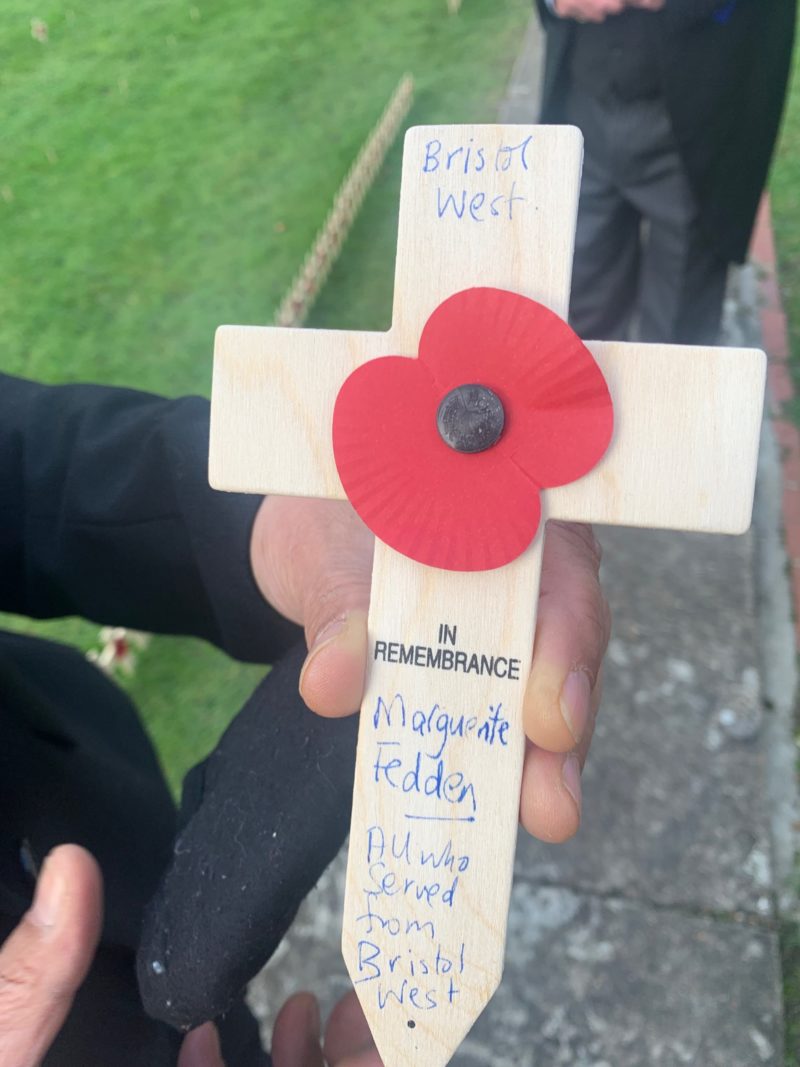Thangam Debbonaire
MP for Bristol West
Shadow Secretary of State for Culture, Media and Sport

Remembrance Day is an opportunity to think about the men and women who gave so much in wars. This year I thought I would write about some of women who have lived in my constituency and whose contributions, on and off the battlefield, gave us the freedoms we enjoy today.
This year, Parliament has a dedicated Garden of Remembrance. All 650 MPs have been asked to dedicate an individual or group significant to their constituency. I chose Marguerite Fedden.
Constance Marguerite Fedden was an iconic woman with many talents and causes. She was a writer, a suffragist, public speaker and a cook. During WW1, she managed a Red Cross kitchen in Salonika (now Thessaloniki) Greece. She was later stationed in France. She wrote a book about her experiences during the war. In a review, The Western Daily Press said, “It is clear her duties brought her in tender contact with the bereaved, the sacredness of whose sorrow she knows how to respect.” For her role, she was honoured with the ‘British War Medal’ and the ‘Victory Medal’.
Marguerite was an active member of the Suffragist society and after the war she continued campaigning for equal suffrage. In France, she had seen the graves of young women killed on duty. Women, she felt, had shown themselves to be courageous and capable of self-sacrifice. Why shouldn’t they also have a say in the affairs of running the country?
During WW2, she drew upon her experience and gave talks to women’s groups all over the city about how to make the best of war rations. Her writing was progressive and political. She wrote for newspapers lobbying to improve working conditions and safety for women. Her novels challenged racism and spoke about the horrors of war. She loved Bristol and wrote regularly to the town planners about her thoughts on re-building the city.
As an elected Member of Parliament with a previous career campaigning for equality and safety for women, I stand on the shoulders of women like Marguerite Fedden.
History, as Alan Bennett wrote, is not simply women cleaning up after the men. It is also women fighting alongside men, feeding and nursing men, and then fighting to be seen as equal to men. Marguerite was just one of many such women from Bristol. Flora Bamberger, received the British Empire Medal for services including rescuing people trapped in rubble. Georgina Budgett invented the Red Cross parcel scheme during WW1. Marian Ormerod, an acclaimed singer, worked with the Red Cross to supervise the trainloads of wounded men taken to hospitals during WW1. Rhoda Amine was a WW2 code breaker whose work saved thousands of lives.
I am struck by all of these extraordinary women. I thank Marguerite and all the others named, and unnamed, remembered or forgotten, for their contributions in shaping the world we live in. I hope, like them, I can leave a positive impression on this wonderful city.
***
I am indebted to Bristol historian Jane Duffus for making me aware of these heroic figures. Marguerite’s story, among many others, is in Jane’s fantastic book, ‘The Women Who Built Bristol, Volume 2’. I was honoured to write a foreword for this volume. I recommend everyone interested in Bristol’s untold history get themselves a copy.

